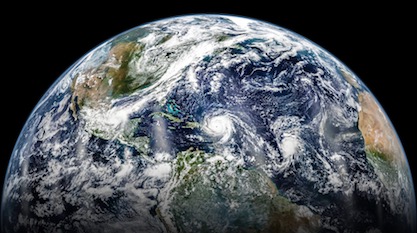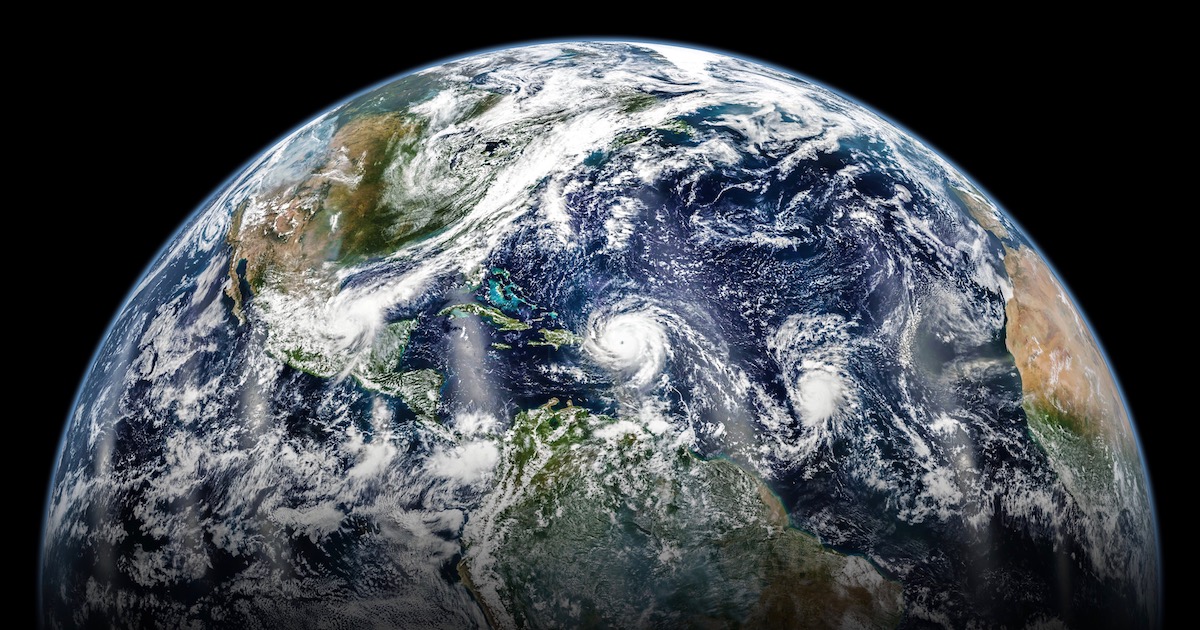 Culture & Ethics
Culture & Ethics
The Earth: It’s Alive! It’s Alive!


There the New York Times goes again — pushing radical environmentalist advocacy in its Sunday paper. This time, we are told that “Gaia Theory” is alive and well — the ridiculous and neo-pagan notion that the earth is a living, perhaps sentient, organism and should be treated as such.
If earth is alive, why not give it “rights” that are coequal to those of humans? Indeed, Lake Erie was just granted rights by voters in Toledo. The Amazon and three other rivers have also been transformed into rights-bearing entities.
The Uber-Green Message
Moreover, if earth is alive, how can humans be considered anything other than one of countless species and no more important than any other? That’s the message often peddled by uber-greens. Indeed, why not consider us as a cancer or maggots afflicting poor, beleaguered Gaia?
Actually, those misanthropic tropes are common in contemporary environmentalism, a venerable movement that has been substantially coopted by what was once its extremist fringe. No wonder the Times published a piece trying to resurrect the idea of a living plant that has been in eclipse for some time.
After describing the amazing complexity of ecological systems — which could just as easily be deployed as an argument for the existence of God — “science writer” (!) Ferris Jabr proclaims,“The Earth is Just as Alive as You Are”:
Those who bristle at the notion of a living planet will argue that Earth cannot be alive because it does not eat, reproduce or evolve. Yet science has never established a precise and universally accepted definition of life, only a long list of its qualities. Like many living creatures, Earth has a highly organized structure, a membrane and daily rhythms; it consumes, stores and transforms energy; and if asteroid-hitching microbes or space-faring humans colonize other worlds, who is to say that planets are not capable of procreation?
If Earth breathes, sweats and quakes — if it births zillions of organisms that ceaselessly devour, transfigure and replenish its air, water and rock — and if those creatures and their physical environments evolve in tandem, then why shouldn’t we think of our planet as alive?
If James Lovelock Is Worried…
Because it isn’t! It is a planet, not an organism. Life exists on it, but the earth is no more “alive” than Mars. Surely, a science writer should deal in scientific facts rather than mystical notions. Good grief, even James Lovelock, who created Gaia Theory, now worries that environmentalism has become a religion.
Did I say mystical? Yup:
Humans are the brain — the consciousness — of the planet. We are Earth made aware of itself.
No. The “earth” isn’t “aware” of anything, including us.
Support for Human Exceptionalism?
Of course, columns such as this are primarily aimed at castigating humans as the great despoilers in order to “guilt” us into sacrificing our thriving to save the earth:
By fuming greenhouse gases, we have not simply changed the climate; we have critically wounded a global life form and severely disrupted its biological rhythms. No other member of this living assembly has our privileged perspective. No one else can see the sinews and vessels of our planetary body. Only we can choose to help keep Earth alive.
In an odd sense, the column supports human exceptionalism (HE), although that certainly wasn’t the author’s purpose in writing the article or the Times’s in publishing it. As a moral species, we do indeed have the duty to treat the environment properly. But we also are duty-bound to provide for our thriving and improve the lot of destitute humanity. These can all be done at the same time under an HE approach, but that isn’t what radical environmentalists are much interested in.
Photo credit: NASA/Joshua Stevens.
Cross-posted at The Corner.
